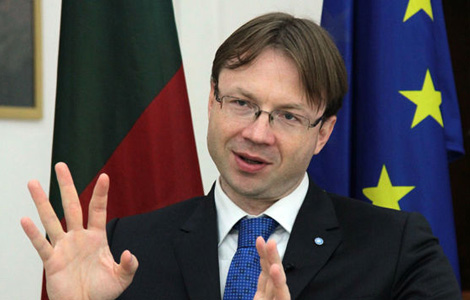Economic slowdown 'due to rebalancing'
Updated: 2013-07-16 07:12
By Chen Jia (China Daily)
|
|||||||||||
"The growth rate is still optimistic when considering the scale of China's economy and is still contributing a lot to the global economy," said Holslag.
But he said this year will be very challenging for the country to restructure the economy against a backdrop of global hardship. Holslag stressed that the risks the government faces come from the banking sector and the stock market.
Wang Jun, a senior economist at the China Center for International Economic Exchanges, a government think tank in Beijing, said China still faces pressure from downside risks in the second half.
"It may push the government to take measures ... to further expand domestic demand. Otherwise, difficulties may arise from tight local government financing and increasing unemployment," Wang said.
He denied that a large stimulus package will be needed, as the new leadership may tolerate a growth rate of no less than 7 percent.
After the statistics bureau released the first-half growth figures, JPMorgan Chase downgraded its forecast for the year's growth to 7.4 percent from 7.6 percent, saying manufacturing investment and overseas demand remain weak.
"A slowdown of GDP growth to 7.5 percent will not trigger a change in policy stance," said Zhu Haibin, chief economist in China with the US bank.
"The new government made it clear that it is willing to tolerate slower growth for better quality of growth. Economic restructuring is the priority task going ahead." Zhu said.
On Monday, Nomura Securities said it will keep its GDP growth forecast for this year at 7.5 percent, but lower it to 6.9 percent for 2014.
"We expect growth to bottom in the second quarter of 2014 at 6.5 percent," said Zhang Zhiwei, the chief economist in China for the company.
"We now expect the central bank to cut the reserve requirement ratio by 50 basis points in each quarter from the third quarter of this year to the second in 2014," Zhang said.
He does not view this cut as a policy easing measure, but as a measure to react to liquidity outflows.
Fu Jing in Brussels contributed to this story.
Related Stories
China's GDP growth slows in 2nd quarter 2013-07-15 16:14
China's Q2 GDP growth slows to 7.5% 2013-07-15 10:24
Headwinds may buffet economic growth 2013-07-10 00:41
Economic growth to pick up, report says 2013-07-05 17:19
China helping buoy New Zealand economic growth 2013-06-24 13:14
Deeper China-US cooperation to drive economic growth 2013-06-04 23:37
Today's Top News
China's US T-bill holdings hit record in May
Asiana crash passengers sue Boeing
'Missile equipment' found aboard DPRK ship
Merkel's rivals go on attack over US spying
Central govt sincere about HK universal suffrage
China signs co-op pact with Belarus
Gay marriage to be legal in UK
Egypt's interim govt takes oath
Hot Topics
Lunar probe , China growth forecasts, Emission rules get tougher, China seen through 'colored lens', International board,
Editor's Picks

|

|

|

|

|

|





